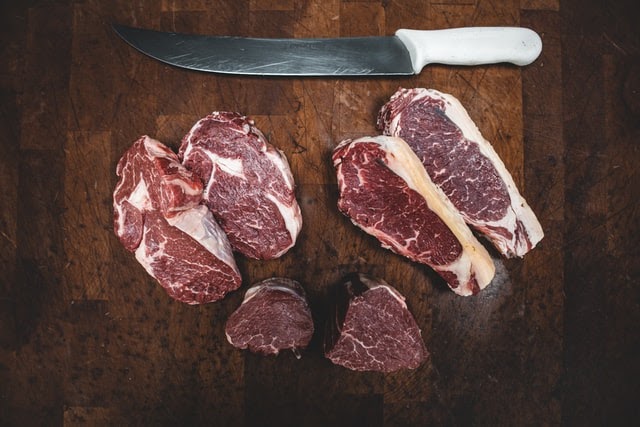I want to introduce you to a group of medical doctors for whom I have great respect. They are known as The Physicians Committee for Responsible Medicine. The are leading a revolution in medicine—putting a new focus on health and compassion. The Physicians Committee combines the clout and expertise of more than 12,000 physicians with the dedicated actions of 150,000 members across the United States and around the world.
Their efforts are dramatically changing the way doctors treat chronic diseases such as diabetes, heart disease, obesity, and cancer.
As they state, “by putting prevention over pills, doctors are empowering their patients to take control of their own health”.
One of their stated priorities is to bring nutrition into medical education and practice. From reading their materials, I see that they have been following the same peer-reviewed research studies as I, and have come to many of the same conclusions.
With respect to their view on the relationship between the consumption of red meat, pork and lamb, and risk of cancer they have published a brilliant research review article on their website. Here is an excerpt (below), but I also encourage you to click on the link below and read the complete document for yourself.
Why should we exclude meat from our daily diet regime?

They begin by stating, “When cancer researchers started to search for links between diet and cancer one of the most noticeable findings was that people who avoided meat were much less likely to develop the disease.
Large studies in England and Germany showed that vegetarians were about 40 percent less likely to develop cancer compared to meat-eaters.
In the United States, researchers studied Seventh-day Adventists, a religious group that is remarkable because, although nearly all members avoid tobacco and alcohol and follow generally healthful lifestyles, about half of the Adventist population is vegetarian, while the other half consumes modest amounts of meat.
This fact allowed scientists to separate the effects of eating meat from other factors. Overall, these studies showed significant reductions in cancer risk among those who avoided meat.
Does cooked meat increase the risk of cancer?
In contrast, Harvard studies showed that daily meat eaters have approximately three times the colon cancer risk, compared to those who rarely eat meat. A number of hypotheses have been advanced to explain the connection between meat consumption and cancer risk.
First, meat is devoid of fiber and other nutrients that have a protective effect. Meat also contains animal protein, saturated fat, and, in some cases, carcinogenic compounds such as heterocyclic amines (HCA) and polycyclic aromatic hydrocarbons (PAH), formed during the processing or cooking of meat.
HCAs, formed as meat is cooked at high temperatures, and PAHs, formed during the burning of organic substances, are believed to increase cancer risk. In addition, the high-fat content of meat and other animal products increases hormone production, thus increasing the risk of hormone-related cancers such as breast and prostate cancer.
What type of cancer does the intake of processed meat cause?
In 2007, the American Institute for Cancer Research (AICR) published their second review of the major studies on food, nutrition, and cancer prevention. For cancers of the esophagus, lung, pancreas, stomach, colorectum, endometrium, and prostate, it was determined that red meat (beef, pork, or lamb) and processed meat consumption, possibly increased cancer risk. For colorectal cancer, a review of the literature determined there is convincing scientific evidence that red meat increased cancer risk and that processed meat, saturated/animal fat, and heavily cooked meat were also convincing of increased risk”.
The website goes on to explain the published studies linking high-fat meat products with breast cancer, colon cancer, prostate cancer and other cancers. Having followed this research closely since completing my master’s degree in nutrition in 1984, and after following the research on this subject for many years, I concur with their findings.
What are the substitutes for people who eat red meat and processed meat?
I would suggest that you click on the link below and read this review article for yourself. I believe it will help to move you away from red meat, pork and lamb products towards lower fat alternatives that have been shown to be much safer – including fish twice per week, a bit of white meat poultry and more vegetable sources of protein such as beans, peas, soy products, and nuts.
I believe that high-fat meat and dairy products have been greatly underestimated as a cause of cancer. They also contribute to high cholesterol problems and weight gain, which fosters the development of diabetes and its complications.
I encourage you to click on the link below and review the evidence for yourself.
References:
Physicians Committee for Responsible Medicine: Meat Consumption and Cancer Risk.
http://www.pcrm.org/health/cancer-resources/diet-cancer/facts/meat-consumption-and-cancer-risk
Eat Smart, Live Well, Look Great!
Dr. James Meschino

